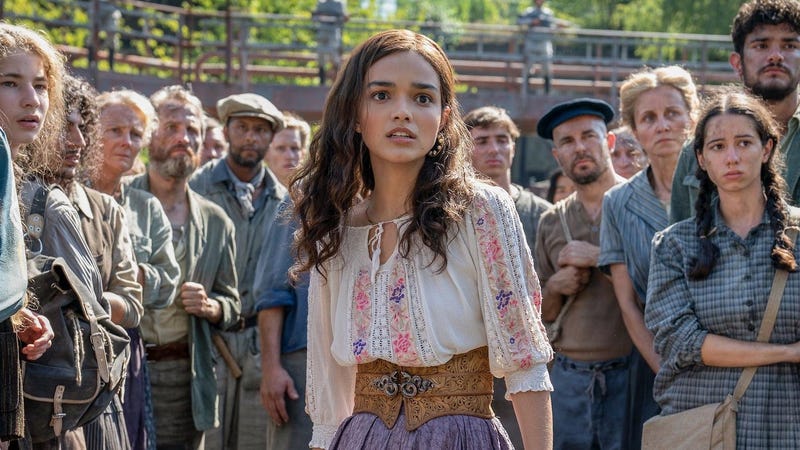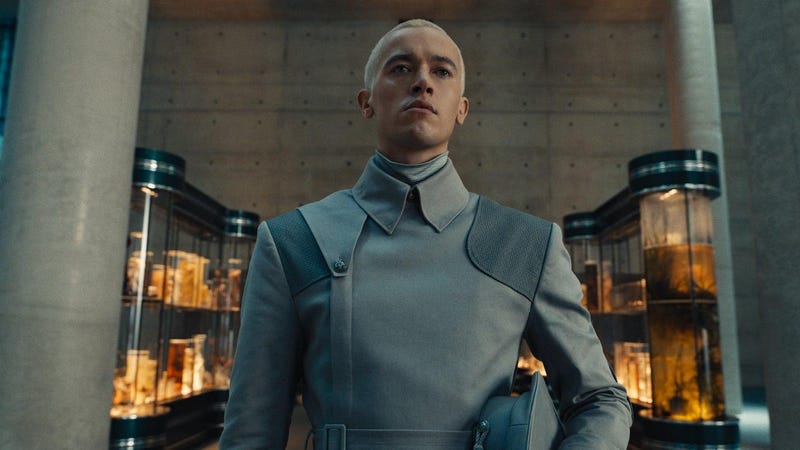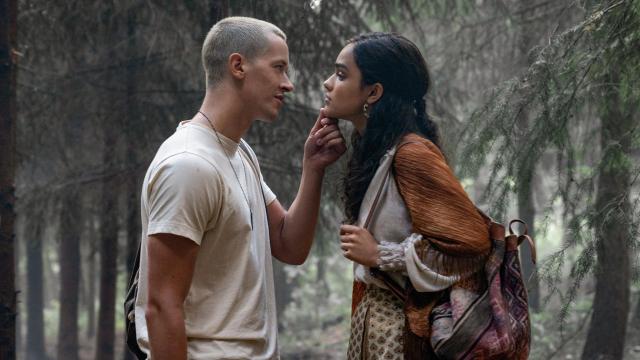When the Olivia Rodrigo song began and the credits started rolling, I couldn’t help but scratch my head. The Hunger Games: The Ballad of Songbirds and Snakes is now in theaters and as a fan of the original films, months and months of trailers had me suitably excited to check it out. But after almost three hours of the story played out on screen, I’d expected things to come together in a satisfying and enriching way. They did not.
Set several decades before the events of the first film, The Hunger Games: The Ballad of Songbirds and Snakes centres largely on Coriolanus Snow (Tom Blyth), the teenage version of the evil leader played by Donald Sutherland in the original movies. In those movies, Snow is the President of Panem and the series’ big bad guy. He’s basically the personification of the titular Games and the punishment and pain they inflict on the people of Panem. This new movie aims to explain how he got there, which is a very exciting and tantalizing premise. What makes someone so diabolically evil? After watching the film, I’m not exactly sure.

Without going through every single beat in the movie, we learn early on that Snow’s family faced difficulties and while they may seem rich, they are not. He is, however, an exemplary student and the hope is to gain fortune and success through that hard work. He’s on the cusp of doing just that when the powers that be change the rules. Instead of having a fair shot at a prestigious scholarship, it will be decided by him and his fellow students acting as mentors in the 10th annual Hunger Games. These are annual events where two kids from each district are randomly chosen to compete to the death on TV. Ratings have been down in recent years and Snow and his classmates are tasked with changing that.

Snow gives the game makers all sorts of ideas to improve the competition, proving his genius, and he ends up, through many rousing and interesting scenes, not only helping his tribute Lucy Gray (Rachel Zegler) win, but endearing her both to the country and himself. Unfortunately, Snow cheated to achieve that so he’s punished by being sent to Lucy Gray’s home district. There, the pair are able to reconnect and explore their love, before a series of events make Lucy Gray realize Snow isn’t as pure as she’d hoped, and he returns to the capital ready to ascend to the throne we know he’ll claim.
Of all of that, 75% of it works very well. Seeing Snow manipulate the games and cheat to help save his tribute has a nice, clear progression. That he then follows her to her district also tracks quite well, and his balance of defiance and obedience while there also line up. But as Snow and Lucy Gray find themselves in several scenarios where Snow ends up selling out his best friend, and then killing another person to save her, the journey gets muddled. We obviously see that there is an evil ambition in him. A desire to achieve and succeed at any cost. But we also see his compassion and, when he decides to run away with Lucy Gray near the end, it seems as if his compassion wins.
This is where director Francis Lawrence, I think, makes his most egregious mistakes. After Snow and Lucy Gray run away together, she mysteriously disappears, leaving him guilty, scared, and angry. It’s this state that sends him back to civilization and ends the movie. But the film does not make Lucy Gray’s feelings towards Snow clear. It’s confusing why or how she leaves him. We assume it’s because she figured out he turned in his friend and doesn’t trust him anymore, but a crucial piece of the puzzle making that clear seems to be missing. Plus, his immediate jump to anger towards her doesn’t track. The ending of the movie follows so closely after these scenes that you can’t help but be like, “That’s it?” Which isn’t a good thing after a movie that’s well over two and a half hours.

Now, to be fair, I’ve only seen the movie once. Maybe I missed something. Maybe there was a knowing wink or look that helped coalesce Lucy Gray and Snow’s journeys. And yes, Snow does then kill one of his main adversaries, Dean Highbottom (Peter Dinklage), upon his return to solidify he’s on his way to pure evil. But it still feels like there are huge gaps in that key relationship between Snow and Lucy Gray, especially by the end, which makes the movie fall apart ever so slightly right when it needed to come together most.
All of which is to say The Hunger Games: The Ballad of Songbirds and Snakes isn’t bad. Seeing the early days of the Games and a Panem decades before Katniss is certainly entertaining. But when the entire point of the movie is to be an origin story for a villain, that part of it should work better than anything else. And, in our minds, it’s the opposite.
The Hunger Games: The Ballad of Songbirds and Snakes is now in theatres.
Want more entertainment news? Check out when to expect the latest Marvel, Star Wars, and DC releases, what’s coming to cinemas in Australia this year, and everything streaming this month across all platforms. Check out our dedicated Entertainment tab for more.
